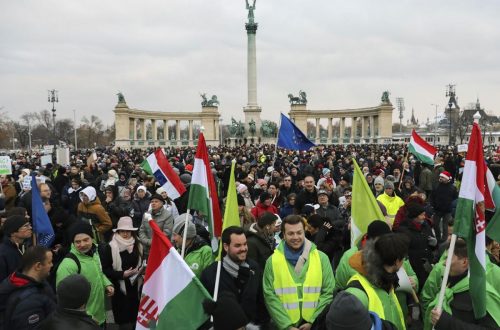The Muslim Public Affairs Committee (UK), congratulates President Ahmadinejad in a post that presumes to educate us about ‘Democracy’.
Helpfully, they provide the formula: “More votes = that candidate is more popular.”
Democracy, eh? Here is the lowdown on the ‘democracy’ that MPACUK speaks of in such glowing terms – in a globule – courtesy of Wikipedia:
“Although he remains aloof from the competition of politics, the most powerful political office in the Islamic Republic is that of the Supreme Leader, of which there have been two: the founder of the Republic, Ayatollah Ruhollah Khomeini, and his successor, Ali Khamenei.
The Leader appoints the heads of many powerful posts – the commanders of the armed forces, the director of the national radio and television network, the heads of the major religious foundations, the prayer leaders in city mosques, and the members of national security councils dealing with defence and foreign affairs. He also appoints the chief judge, the chief prosecutor, special tribunals and, with the help of the chief judge, the 12 jurists of the Guardian Council – the powerful body that decides both what bills may become law and who may run for president or parliament.”
So, someone should remind MPACUK that since the ‘Supreme Leader’ and his ‘Guardian Council’ pre-approve the presidential candidates in the fist place (and in the second place, retain executive power over almost all important decisions), far from being a model on which to base smug lectures about the power of the people, Iran has no bloody democracy in the first place!
Indeed, a more apt lecture of the subject comes from the horse’s mouth:
“Don’t listen to those who speak of democracy. They all are against Islam. They want to take the nation away from its mission. We will break all the poison pens of those who speak of nationalism, democracy and such things.”
This is what the first “Supreme Leader”, Ayatollah Khomeini, told a meeting of Iranian students and educators in Qom on March 13 1979.
Between ‘elections’ MPACUK have very little to say about Iranian democracy – or the lack of it – as experienced by the country’s women’s liberationists, trade unionists, apostates, religious and sexual minorities and journalists.


